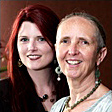The energy of springtime and incipient growth were honored in Washington, D.C., in February when the Institute of Medicine (IOM) hosted a Summit on Integrative Medicine and the Health of the Public. Just as the liver provides direction and organization to the body, this international conference advanced leadership about the status of health and health care in the 21st century.
In an opening letter of welcome from Britain's Prince Charles, he expressed his "delight with the IOM at hosting the Summit" because he has been personally committed to integrative care for the past 25 years. Speakers included such luminaries as Sen. Tom Harkin (D-Iowa), Dr. Dean Ornish, Dr. Mehmet Oz, and Dr. Josephine Briggs (of the NIH's National Center for Complementary and Alternative Medicine). Stakeholders who attended the meetings included health care providers of all types, scientists, researchers, acupuncture school administrators and advocates from the American Public Health Association's group on Alternative and Complementary Health Practices.
With the goal of "harmonizing our strength," speakers stressed the need to define the term integrative and to think in terms of care that is more comprehensive than medicine alone. Because the U.S. is in the midst of a profound renewal, we have the perfect opportunity for shifting our ideas of health based on a disease model to a model that is centered on healthy people. The World Health Organization has stated, "Health is creating places where we live, love, work and play." Donald Berwick, of the Institute for Healthcare Improvement, remarked, "Integration is not a password, but is a duty to contribute to healing suffering." A number of speakers re-iterated that what is beneficial for the individual is beneficial for the planet, and that it is possible to achieve personal and global sustainability through an effective network of care. Integrative approaches to health can provide renewable and person-centered benefits.
 Setting new priorities related to wellness and integrated health does not automatically mean additional national spending. Priorities can be shifted to emphasize and reward wellness and the strategies needed to achieve it. Because the U.S. is already spending $2 trillion for health care (the largest budget of any country in the world), but is ranked 40th in overall national health, there has been a critical failure to focus on health promotion and disease prevention. Instead, the health care industry has become a disease-centric and dysfunctional system that fails all stakeholders: consumers, providers and payers.
Setting new priorities related to wellness and integrated health does not automatically mean additional national spending. Priorities can be shifted to emphasize and reward wellness and the strategies needed to achieve it. Because the U.S. is already spending $2 trillion for health care (the largest budget of any country in the world), but is ranked 40th in overall national health, there has been a critical failure to focus on health promotion and disease prevention. Instead, the health care industry has become a disease-centric and dysfunctional system that fails all stakeholders: consumers, providers and payers.
Administrators and faculty from a number of acupuncture colleges were in attendance. Elizabeth Goldblatt, of the Council of Colleges of Acupuncture and Oriental Medicine, who also chairs the Academic Consortium for Complementary and Alternative Health Care, moderated a panel discussion on the health care workforce and education.
The theme of partnerships with schools of other disciplines was echoed by a number of speakers, and the concept of inter-professional education was raised. Students from acupuncture schools would have the opportunity to take some courses with students from schools of medicine, nursing, naturopathy and homeopathy. Carol Black, of Britain's Academy of Medical Royal Colleges, recommended that all students of health care learn how to cooperate across disciplines. She believes that this might create the opportunity for synergy across the professions, without diluting specific skills or resulting in loss of professional identity. This type of interactive learning could address issues of professional territorialism and get the professions out of the "training silos" that isolate us. When students learn together, they learn how to cooperate and function as a team. They can "build a lattice of integrated care." Dr. Goldblatt even postulated that, as health care providers, we have an ethical responsibility to know about the techniques and approaches used by our colleagues.
Katherine Tallman, president of New England School of Acupuncture, stated that she "was encouraged to see leaders across disciplines brought to the table as equals, accepting a collective mandate to act now and swiftly to create a whole-person-centered, preventative-oriented model for health care that includes all modalities, the success of which will be measured by efficacy of treatment. We must prepare our practitioners to understand and speak the language of all modalities within a caregiver team and be as respectful of their roles as we expect them to be of ours. We must work across disciplines to shape the definition of core competencies that demonstrate preparedness on behalf of acupuncture and Oriental medicine." She further challenged our profession to "take this opportunity to come forward in a spirit of cooperation toward the ultimate goal - person-centered, true health for all. "
Her sentiments were echoed by Carla Wilson, director of Quan Yin Healing Arts Center in San Francisco, who found the discussions on education excellent. "[They remind] us about our responsibility to train ethical, compassionate, and well-prepared people to enter the field of acupuncture and Oriental medicine. We must develop a transdisciplinary model of health provision and serve as major collaborators to achieve meaningful health care reform."
The discussions that were initiated at the Summit will be ongoing and dynamic, and our community is invited to join in the co-creation of these exciting visions. Slides and audio files of all the presentations will be available on the Summit Web site at www.iom.edu/integrativemedicine. A video Webcast will also be available on the site.
Participating in this historic and groundbreaking conference was a privilege and inspiration. Imagining a world of people who have access to integrative care, with wellness as a right, provides a foundation for our audacity of hope.
Click here for previous articles by Elizabeth Sommers, PhD, MPH, LAc.
Click here for more information about Kristen E. Porter, PhD, MS, MAc, LAc.




